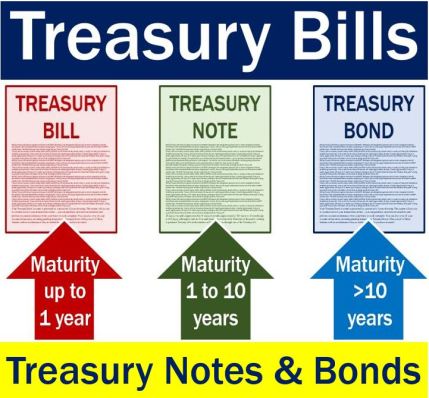The Nigerian debt market has been faced with a series of challenges, most of which were triggered by the worst pandemic recorded in human history. Its prospects in attracting foreign portfolio investors were dampened as macros on Nigeria’s economy revealed a downtrend in the market, and this trend has only worsened in the past months.
The fixed income market sustained its downward trajectory for the third consecutive month in June 2020 largely driven by excess liquidity as well as an overall scarcity of instruments in the market. Reports from several analysts indicate the demand for fixed income securities has increased considerably over the last 6 months driving down interest rates earned by investors.
Victor Silas an Investment analyst spoke about the OMO bills liquidity for the month of June. He said, “For June, fixed income rates were liquidity-driven following the ban of locals from OMO and limited investment outlets. OMO bills maturities are creating more liquidity for locals and it is finding its way to the bond market and Treasury bill.
Issuers Market
Emmanuel Orji Emerging Market/ Fixed Income Trader, COMERCIO PARTNERS spoke to on the performance of fixed income securities in June. He said;
“Subsequently, the unexpected reduced sale at the June bond auction of NGN100 billion as against the NGN150 billion originally offered further strengthened the aggressive bullish run in the bond market.
“The bond auction closed relatively strong as a result, with a bid to cover ratio of 3.6x and rates declining by 120bps, 70bps, and 45bps to print at 8.00%, 11.00%, and 12.15% across the 3-year, 5-year, and 30-year maturities respectively. Note: BPS refers to basis points, a financial term for percentages. 100 basis point is equal to 1%.
As a result, yields for the benchmark securities monitored declined across all maturities on a month-on-month basis, with yields of the sovereign bonds with 3-year, 5-year, 10-year and 20-year maturities declining by 332 bps, 138 bps, 96 bps, and 138 bps to close at 5.64%, 7.13%, 9.76%, and 10.05% respectively.
“Given the amount of idle PFA cash sitting in bank placement (c. NGN1.5 trillion) and the sudden weakness in demand for equities, we expect the buying interest to persist in the near term, which should drive yields lower in the bonds market.”
Nigerian fiscal stakeholders have resorted to borrowing domestically as opposed to seeking for funds abroad, another effect of the pandemic. This is expected to lead to an increase in the yields of FGN bonds in the short and mid-term horizon as the inward plan to seek funds locally intensifies.
Where this leaves equities
Concomitantly, the equities market benefitted from the apparent thirst for asset yielding investments in recent months. As yields for safer investment fell, investors shifted to the equities market taking advantage of the earning season often market by dividend payouts. Most stocks paid dividend yields in double digits following the stock market crash in March 2020.
But by June the market sell-offs ensued with investors moving funds out to secure stakes in corporate debt securities. The yoyo between debt and equity is likely to ensue as uncertainty remains in the forex market and the country’s stimulus plans.
Some retail investors who spoke to Nairametrics insist they have abandoned the Nigerian Stock Market preferring to trade in cryptocurrencies or US stocks. The proliferation of intech supported investing apps has made cross border investing easier providing access to market far beyond the shores of Nigeria.
Source:Nairametrics





m8koia
Hello very cool website!! Guy .. Beautiful .. Amazing .. I will bookmark your site and take the feeds also?KI’m satisfied to search out numerous helpful info here in the publish, we’d like work out more strategies in this regard, thank you for sharing. . . . . .
The very crux of your writing whilst sounding agreeable initially, did not really sit properly with me personally after some time. Someplace throughout the sentences you actually managed to make me a believer unfortunately just for a very short while. I however have got a problem with your jumps in logic and you would do well to help fill in those breaks. In the event you actually can accomplish that, I will certainly be impressed.
I would like to thnkx for the efforts you have put in writing this blog. I am hoping the same high-grade blog post from you in the upcoming as well. In fact your creative writing abilities has inspired me to get my own blog now. Really the blogging is spreading its wings quickly. Your write up is a good example of it.
I have read several good stuff here. Certainly worth bookmarking for revisiting. I wonder how much effort you put to make such a wonderful informative website.
You made some decent points there. I appeared on the web for the problem and located most individuals will go together with with your website.
You are my breathing in, I own few blogs and rarely run out from to brand : (.
Greetings from Carolina! I’m bored to death at work so I decided to check out your site on my iphone during lunch break. I really like the information you provide here and can’t wait to take a look when I get home. I’m shocked at how quick your blog loaded on my phone .. I’m not even using WIFI, just 3G .. Anyhow, good blog!
Hi my friend! I want to say that this article is awesome, nice written and come with almost all important infos. I would like to see extra posts like this.